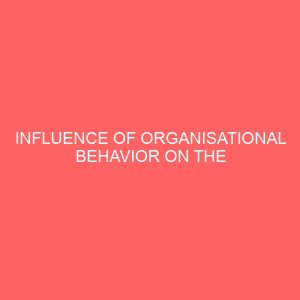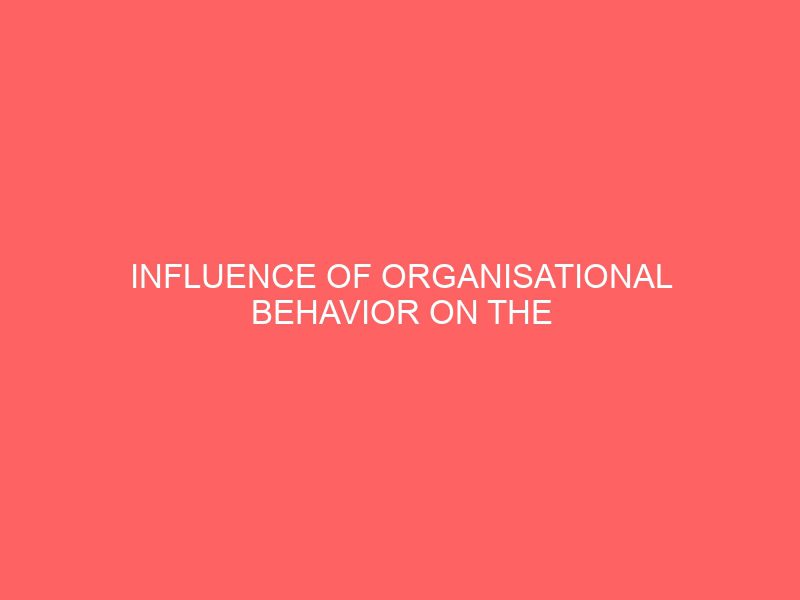Description
CHAPTER ONE INTRODUCTION 1.1 Background to the study In all the areas of organisational behaviour, the handling and management of emotions seem more neglected. This is needed for organisations to survive otherwise personal tensions and conflicts may result. People experience great difficulties in copying with fierce even outrageous impulses. The Dutch historian Huizinga (1924) writes about the more ferocious and rather unpredictable shifts of behaviour in Medieval Europe. There undoubtedly were norms and agreements to regulate behaviour and mutual interactions. Bernard du Rosier (1404 ? 1475) in his effort to propagate other rules of conduct in organisations emphasised on keeping behaviour, emotions and temper under control continuously. Van(1994) noted that during the period of capitalism, the problems of organisationswere discipline, behaviour management and coordination of employees. Factory regimes were based on a tangled combination of coercion from the side of organisations and willingness or motivation on the workers? part. Bringing people together in one space implied the danger that they would get in each other?s way, that arguments could erupt as a result of differences in behaviour or that they would over indulge in other activities detrimental to the growth of the organisation. Conformance with the individual regime was indirectly threatened by corruption of the moral in the free time (Van, 1994). However, with the emergence of Scientific Method by Taylor, the founder of Scientific Organisational Design (1856 ? 1915) emphasis shifted to imposition of discipline on the activities of subordinates. He explained how employees managed to restrict production by ?soldiering and loafing?. He contended that applying individual training, better communication pattern, desirable organisational culture, forum for interaction and association and other measures could gradually overcome the tendencies of soldiering and loafing. His experience provided a good impression on how personal power can be replaced by more ?neutral? mechanisms of control. In today?s increasing interdependent companies and organisations ? within the context of the global free-market economy, managers need to understand the synergistic roles played by organisational behaviour forces in influencing behaviour.Multinationals are reorganising in response to the changing environment, hoping to capitalise on opportunities for growth. With emphasis on international business and global economy, there is a search on for a new breed of employees and managers. Such employees know how to conduct business across international borders, is often multilingual, thinks with a world view and is able to map out strategies that keep organisations on business track. Competition in banking businesses today has made managers in the sector to realise that managing behaviour is complex and challenges innovation, economic growth and corporate sustainability. Consequently, Susmeta (2013) states that managers need to know individual differences among employees since individual differences have direct effect on behaviour stressing that people who perceive things differently behave differently; people with different attitudes respond differently to directives and that people with different personalities interact differently with bosses, co-workers, subordinates and customers. He further states that knowledge of individual differences helps to explain why some people embrace changes and eventually become







